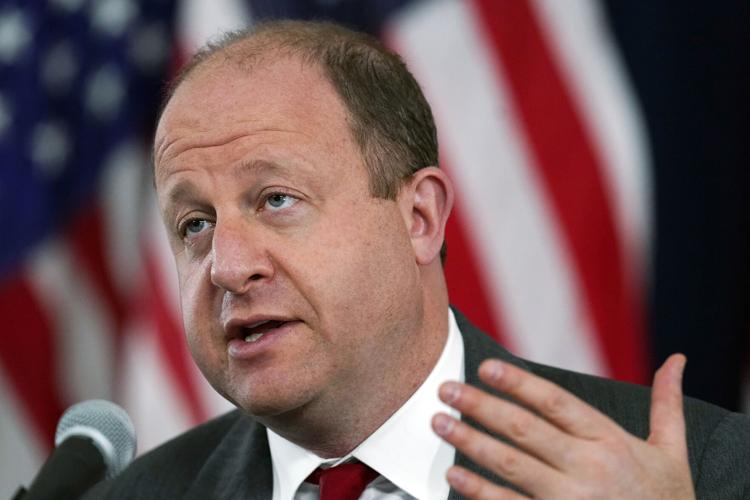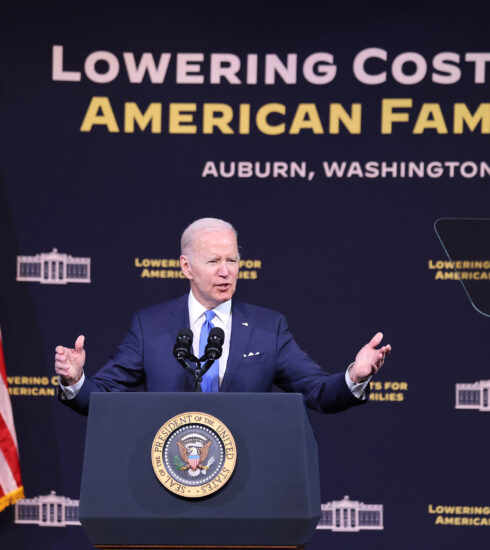
Gov. Jared Polis wants the BRF scheme to be replicated all over the country. Credit: Denver Post
It’s no secret that the U.S. economy relies heavily on the labor of low-wage workers—and even more so in states like Colorado, whose mountainous grandeur and landscape has produced a thriving summer-and-winter-tourism industry. But jobs in the hospitality sector are generally volatile, and many were lost in unprecedented quantities at the height of the Covid-19 pandemic.
The consequences were even worse for undocumented immigrants, who weren’t able to receive unemployment assistance after layoffs. But the State of Colorado is looking to change that with the newly launched Benefit Recovery Fund scheme.
The Colorado Senate Bill on Unemployment Compensation created the Benefit Recovery Fund (BRF) as a remedy to this inequity. The BRF is an unemployment compensation program for eligible undocumented individuals who have lost employment through no fault of their own.
This program, which is the first of its kind nationwide, will provide direct cash payments to eligible, recently unemployed undocumented Coloradans to help them pay for critical needs they and their families might have. The BRF will be funded by some of the dollars already paid by employers on behalf of undocumented workers, and is separate from the state’s traditional unemployment insurance program.
In an effort to reduce costs and streamline the effort, Colorado has recruited AidKit, a Denver-based software company that helps governments distribute aid through direct cash and guaranteed income programs around the country to run the platform and administer the program. It hopes the model can be a template for the rest of the country to help support marginalized workers.
Typically, employers pay a certain amount per employee into the Unemployment Insurance Fund, from which unemployment benefits are drawn for laid-off Coloradans. According to the Colorado Fiscal Institute, while this is paid by employers, they offset the cost by reducing wages accordingly. So for all intents and purposes, workers are helping to fund the pot. But even though this program is run by the state, it’s a federal fund, which means undocumented immigrants are ineligible for that assistance—even though they’re paying for it.
Laid-off workers will be entitled to 55% of their average weekly wage during their period of unemployment. Like the regular fund, this will only apply to workers who have previously been employed in the state.
There are some benefits for Colorado. Issuing unemployment assistance helps keep low-wage workers local and ready to rehire, which maintains a stable workforce. The downstream effects of this fund also help the state be more resilient, as unemployed workers are able to keep spending money in the local economy.
Colorado is the first in the nation to create such a fund. In September 2023, California Governor Gavin Newsom vetoed a bill that would have created a similar unemployment fund for undocumented immigrants. He cited cost concerns, with the estimated $200 million it would take to set up tech platforms for the cash distribution.
Like California, Colorado estimates upfront fees to be high, originally forecasting $55 million. Attempting to lower costs, the Colorado Department of Labor and Employment (CDLE) hired AidKit, which already has a robust system. While it will need to be adapted to fit Colorado’s needs, it will be cheaper than modifying outdated state systems or building something completely new. Neither AidKit nor CDLE would share the final cost, but AidKit suggests it will cost “tens of millions of dollars less” than the original estimate.
AidKit has relevant experience. A week into the pandemic, founders of the Colorado non-profit Impact Charitable raised funds to send direct cash benefits to undocumented workers, who’d been left out of stimulus checks and unemployment assistance. They launched the Left Behind Workers Fund, which ended up sending $38 million to undocumented Coloradans from a mix of private and public funds.
Since launching, AidKit has administered programs from Los Angeles to Washington, D.C., including the country’s largest guaranteed-income pilot in Chicago, delivering cash to 3,250 residents for 24 months.
A worker will be eligible for the BRF if they reside in Colorado, provide proof of their identity, have separated from employment through no fault of their own due to one or more of the factors outlined in C.R.S. § 8-73-108(4), received income from employment during a qualified base period or alternative base period as defined in C.R.S. § 8-70-103, attest that they are not currently receiving any state administered wage replacement assistance, are not eligible for state-administered wage replacement assistance and have a pay stub or form W-2 to verify their employment and wage withholding.
Those eligible will be compensated through direct bank transfer or a preloaded debit card. Crucially, AidKit will help reach the population through its various partner organizations—important for a community that is often nervous to come forward because of their threatened status. Once they have the cash, they can spend it how they see fit.






